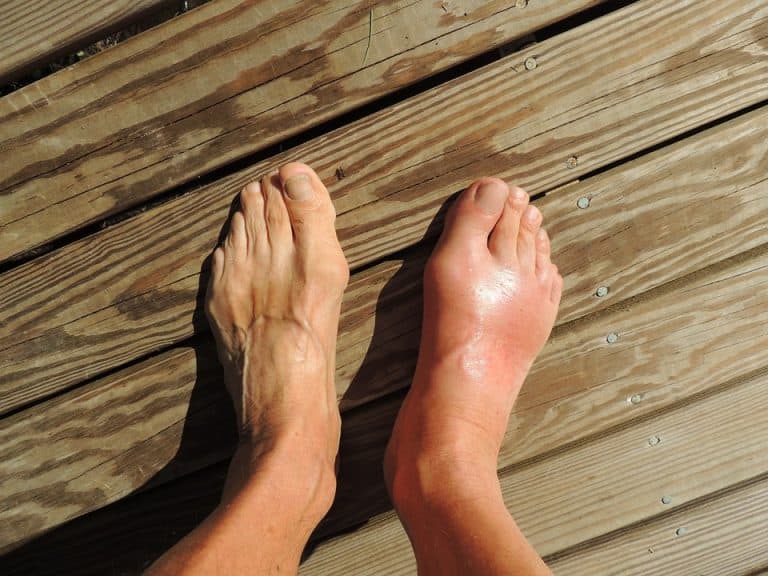With over 1 million orders

INFLAMMATORY CONDITIONS: THE DIFFERENCE BETWEEN GOUT AND ARTHRITIS
Strictly speaking, arthritis is a broad term that refers to pain and diseases occurring at the joints.
According to Dr. Ginny Sugimoto there are more than 100 types of arthritis, and gout is just one of them. The main difference between gout and other types of arthritis is that gout mainly stems from chemical imbalances in the body that can be corrected via lifestyle changes and medication.
Daily Food Intake Can Worsen or Mitigate Gout
Whatever we eat or drink is eventually used by the body to repair and maintain itself.
Some of the food and drinks we consume on a daily basis contain chemical compounds known as purines. Healthline suggests the body’s natural response to purines is to convert them into uric acid, which is then excreted through urine. Gout is the inability to get rid of uric acid, causing it to build up in the joints in the form of sharp crystals, which is what causes gout arthritis.
In short, purines turn into uric acid and a buildup of uric acid causes gout. This is why one of the most effective treatments available for gout is altering daily food intake – basically consuming less food and drinks that contain high amounts of purine.
Patient.info published a digital leaflet discussing gout and it states that alcohol is the main culprit of uric acid buildup; next are sugary soft drinks, herring, sardines, mussels, beef, pork, and yeast extracts. While giving up rich food may seem like a dire situation, you don’t have to completely cut these from your diet. Moderation will do. Besides, there are several gout-friendly recipes and dietary plans that are both healthy and delicious. Just consult your doctor or nutritionist about transitioning to a gout-friendly daily food intake plan.
Gout attacks feel very similar to ankle sprains although are very different in nature. The crystallization of uric acid in the joints can cause blinding pain even if the joint is at rest. This painful inflammation can be mitigated with alternating applications of cold and hot compress, non-steroidal anti-inflammatory drugs aka NSAIDs like ibuprofen or naproxen, or colchicine.
Livestrong reports that apple cider vinegar can also provide long-term relief from inflammation, although it may initially cause a gout attack due to dissolving uric acid crystals.
In any case, the most effective long-term treatment for gout has been shown to be committing to long-term changes in daily food and drink intake.
Arthritis is a Complicated Group of Diseases
As mentioned above, there are over 100 types of arthritis. And along with gout, osteoarthritis and rheumatoid arthritis are the most common types.
The Arthritis Foundation states that osteoarthritis – a degenerative joint condition that usually occurs in the hands, feet, hips, knees, or spine — is the most prevalent. Symptoms present itself when the cartilage between the bones wear out, causing bone to rub against bone, resulting in swelling, stiffness, and pain.
Rheumatoid arthritis is when the body mistakenly attacks its own tissues in the body, causing inflammation in the joints. It’s not degenerative; rather, it’s an autoimmune disease – a dysfunction of the immune system.
Apart from causing pain, stiffness, and inflammation, these gout, osteoarthritis, and rheumatoid arthritis have other things in common: treatment options.
Arthritis commonly occurs in the load-bearing joints, like the feet, ankles, and knees. This can be eased by maintaining a healthy weight. Regular physical activity, whenever possible, can also strengthen the joints and in the long-term lessen the severity of arthritis attacks.
Certain exercises can also strengthen muscles around affected joints in order to provide more support. Always keeping the body hydrated can lessen the amount of gout-causing uric acid in the body, as well as keep the joints lubricated. And while there’s no cure for arthritis, there are safe and long-term ways to manage its symptoms.
